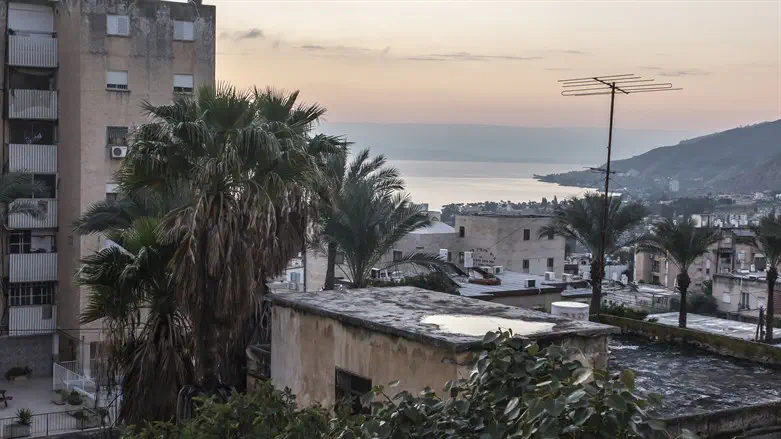
Residents of the Kiryat Moshe neighborhood in Tiberias are concerned over the possibility of another earthquake, Ynet reported.
The neighborhood, which sits on a fault the Syrian-African rift, is home to 260 families who felt the two recent earthquakes quite strongly.
"I am very worried," one resident told Ynet. "I have young children and the day there is a stronger earthquake, my building will collapse. The building is not stable, we don't have a bomb shelter, and we don't have anywhere to run to. I live on the third floor and I will not manage to escape with my children - the only thing we'll manage to do is stand in the stairwell."
Another resident, who has lived in Tiberias for 29 years, has slept outside since the first earthquake, on Saturday night. "We went down to the courtyard at night and I slept here together with my husband, who is on pension," she told Ynet. "We sat in the rain, we slept outside at night. It was scary. You can't sleep, you wake up at three in the morning."
"There are a lot of cracks in the building, and we are afraid that what happened in Holon will happen here. There are cracks in the wall, and if there is an earthquake that's a 6 or 6.5, G-d forbid, part of the building will fall - it's crooked anyways."
Boaz Yosef, chairman of the committee in charge of Tiberias, told Ynet: "Kiryat Moshe is the most dangerous neighborhood in the city when it comes to earthquakes. The neighborhood has about 60 buildings that if there is an earthquake - they will fall first. The buildings were constructed by initiative of the Housing Ministry, who did not examine [the location] 50 years ago, and built an entire neighborhood on the Syrian-African rift. Today no one would have approved such a building."
The Tiberias municipality, for its part, has pointed a finger at the State, demanding it take responsibility for reinforcing the buildings.
"These buildings were constructed on the State's initiative, so it should take responsibility for them. From my acquaintance with the residents, they cannot afford such an expense. In the state of Tel Aviv, there wouldn't be a problem - they would evacuate the buildings and reconstruct them, compensate the residents, and add apartments. But in Tiberias, and especially in this neighborhood, such a process is not economically worthwhile."
